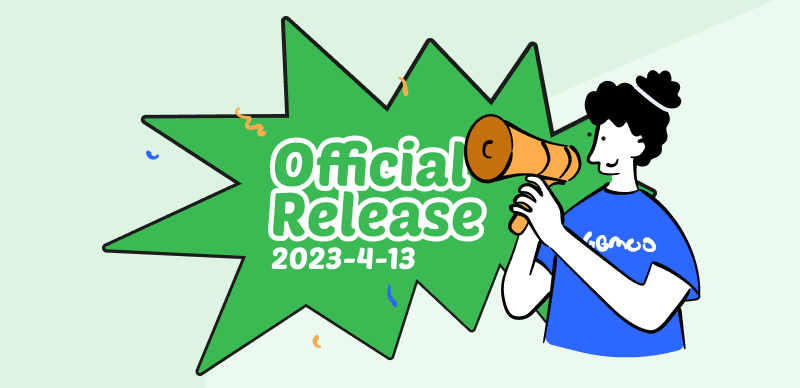Hi there,
It’s Morgan, and today I’d like to discuss something that bothers us the most, as well as one of the most significant challenges that startups face: money.
Most startups, including mine, are dealing with the realities of a limited budget, also known as “money from family, friends, and fools.” How money is divided into valuable items and placed in the right place can sometimes determine whether or not a startup is successful.

From 0 – 5k Registered Users, Where Do We Spend the Most of Our Money?
Also read: How to Build in Public Step by Step? >
We now have over 5K registered users thanks to proper financial distribution. Based on my experience, I’d like to discuss where to spend money as a startup when we’re short on finance.
The expenses I’ll discuss do not include team hiring; because my team is made up of former coworkers who want to do amazing things with me. Also, it will not include server costs, which are clearly inevitable for almost every tech company.
Let’s get started.

We’ve Gained More Than 5k Registered Users Till April 14th
Table of Contents: hide
Market Research or Consultant
The decision to make or not make a product will not be made by a single person or mind but by the market and potential users.
Most startups will face some challenges in maintaining their growth rate because they haven’t identified the right market by conducting thorough market research on it.
Since almost half of my teammates and I used to work in the marketing field, so we understand how critical it is to have the best marketing research from the start. However, we are not SaaS experts, so we invited some acquaintances and friends who have been dedicated to the SaaS field to do us paid consultant, which also gives us confidence along the way to build Gemoo, otherwise, we may still be wandering around deciding what to build.
So, if you or your teammates are experienced marketers who can conduct thorough research, you can save this amount of money; otherwise, spend the money to purchase a professional market report or hire a paid consultant to strengthen the foundation of your project.
Identify Niche Market
I understand that the niche market is a key access point to rapid growth, so I consider it one of the most important missions we’re working on. However, unlike some other products that have a clear niche market, Gemoo’s niche market was initially unclear, and it took some time and money to figure out who the target users were.
We attempted to target teachers and designers and ran a few targeted ads and campaigns to collect data and determine whether the niche group is interested in Gemoo. And the results revealed that teachers had little interest in our product, whereas designers showed more interest in Gemoo by clicking more times and freely writing review blogs for us.
After that, we concentrated our efforts on obtaining great badges for design tools on ProductHunt, which was also evidence of attracting niche users. Then it led us to our next step: finding more designers and improving Gemoo to make designers’ workflows more efficient. At the same time, we would continue to seek out niche markets other than designers.
It turned out that spending money on targeted ads and campaigns to identify target users is not a bad idea, as it would lead you to a location closer to your target users.
Brand Building
According to some founders, the brand is not as important as the product itself, but I value the brand very much because I’ve also been in the marketing industry for a few years. I understand how important it is to build a strong and consistent brand to let your product jump into users’ minds when they are in a specific scenario, as well as to help differentiate your startup from competitors and create long-term consumer loyalty.
Furthermore, as I demonstrate in my previous article, failing to find PMF is the most common reason why startups fail, but building a brand is an alternative method to PMF to some extent to help you build trust between you and customers and may help you get through the hardest times. What I’m talking about here isn’t just product branding; it can also include founder brand, team brand, or something similar, particularly for tech startups, to help you be more humane by breaking down the communication barrier between you and your customers.
That’s why my team and I have spent a lot of time and money to create a well-designed website as well as polish the simplest and clearest user interface inside Gemoo, taking into account the consistency between the brand logo, website style, app user interface, and promotion activities. In addition, when I’m building in public with my teammates, we will frequently do brainstorming to discuss what kind of brand awareness we want to convey and will prepare article topics based on it to keep everything consistent.
Legal Research
Paying attention to legal risks is a must-have lesson for all startups, especially those in the technology industry, in my opinion. We put a lot of effort into Gemoo because it has something to do with files and storage, which is quite sensitive for some users.
Conduct legal research. It’s the same as doing a market search; before we enter this field, we need to know what the potential risks of developing software such as screen recording, screen capture, and so on are, which legal issues we’re going to follow, what kind of data protection we’re going to implement in accordance with it, and whether there are any differences between laws in different states.
Hiring a lawyer as a consultant for your startup, in my opinion, should be done as soon as possible in order to keep your startup safe and sound in the future. Find legal experts and hire the one who best fits your product. This is an essential class for any startup.
In Conclusion
We’ve spent the majority of our money on the items listed above. Even though we have a limited budget, there are times when we have to pay to create a path for our products. What is your most significant startup cost? I’d love to hear your stories, don’t hesitate to get in touch with me on Twitter.



